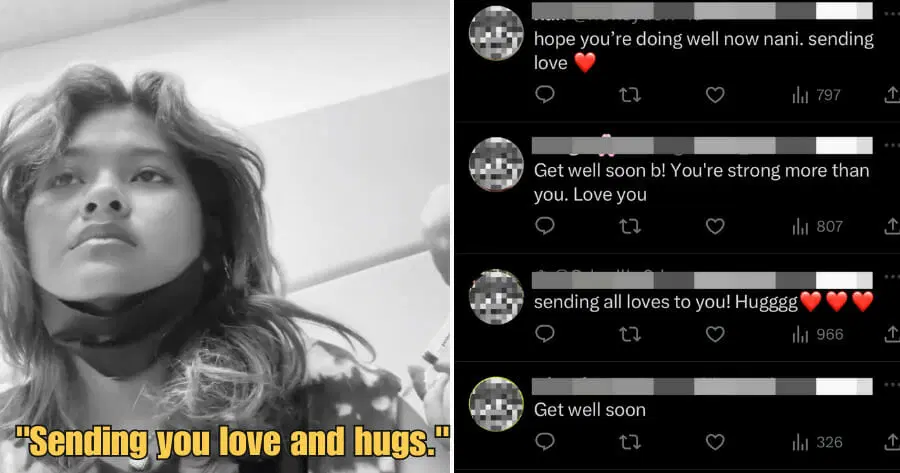Come each September is a time dedicated to building up awareness about the distressing reality of suicide while simultaneously combating it with all the knowledge and tools necessary for Suicide Prevention Month.
As most of us know, Malaysia is not immune to this distressing issue, which is made evident by an 81 per cent increase in reported suicide cases in 2021 (1,142 cases in 2021 compared to 631 cases in 2020). This is made even more complicated by some Malaysians who continue to stigmatise suicide by engaging in behaviours such as distrusting, avoiding and shunning those who experience this problem firsthand.
So to commemorate Suicide Prevention Month, we implore Malaysians to take these steps to deal with this stigma whether they are afflicted by suicidal ideation or want to support those who are afflicted.
1. Educate yourself and others on suicide prevention

The first step in overcoming suicide stigma starts with ourselves. With the right amount of knowledge and by encouraging widespread, you’ll have a great starting point to break the stigma surrounding suicide.
A good place to start is by correcting myths about factors that contribute to someone being at risk. Here are a few widespread myths about suicide and the actual facts behind them:
- ❌ MYTH: Talking about suicide or asking if someone is suicidal can increase the risk of suicide.
✅ FACT: Talking about suicide with someone who is struggling with suicidal thoughts can help them feel heard, understood and more open to exploring options for getting help. This in turn will reduce the risk of suicide.
- ❌ MYTH: There are no warning signs that someone may be suicidal.
✅ FACT: People display different behavioural patterns when it comes to suicide, some more obvious than others. These warning signs may range from physical and verbal to behavioural changes.
- ❌ MYTH: People who have suicidal thoughts don’t intend to actually follow through, therefore they should not be taken seriously.
✅ FACT: If you are experiencing suicidal thoughts, you must try not to see your situation as a sign of weakness or that you can just stop thinking about these thoughts. Conversely, if someone you know expresses these thoughts, you should listen to their problems in a caring and non-judgemental manner while encouraging them to seek professional help.
Aside from myth-busting, you can also educate yourself by learning about warning signs, risk factors, crisis support, safety plans and more. Here are some useful resources:
- National Institute of Mental Health – Frequently Asked Questions About Suicide
- Ministry of Health Malaysia – Malaysian Guideline on Suicide Prevention and Management
- Befrienders Kuala Lumpur – You Can Help Prevent Suicide
But it’s not enough for you alone to read up on suicide prevention; share your knowledge with others as well!
2. Be more proactive in getting help if you or someone you know is at risk

The next step in beating the stigma is to set aside any worry about what others may think. If you or someone else shows signs of distress, notify someone you know or a health professional. As with other health problems, the earlier you find the right treatment and support, the better.
And in that regard, those who are affected by suicidal ideation should also avoid isolation. Do not let worry, shame or guilt keep you from meeting your friends, family and others in your community. Sometimes, all it takes to gain the support of the people in your life is to let them know you are struggling.
3. Use mindful language, including when you talk about yourself

While they may seem trivial at times, words carry a lot of weight in shaping opinions and perceptions of suicide. Which is why learning how to talk about suicide in a hopeful and respectful manner can make all the difference in saving lives.
To illustrate, here are a few phrases to avoid and what to substitute them with instead when discussing suicide with others:
- ❌ Commit/committed suicide
✅ Died/passed away by suicide (More neutral phrasing)
- ❌ Successful/unsuccessful suicide (Carries the notion that suicide is something positive to achieve)
✅ Died by suicide/Survived a suicide attempt
- ❌ Epidemic of suicide/Skyrocketing suicide rate (Emotionally charged terms that can cause panic within the listener)
✅ Rising/increasing suicide rate (Purely quantitative and neutral terms)
On the other hand, if you happen to be at risk yourself, you should also mind any negative self-talk. Negative self-talk patterns can worsen your well-being and mental health especially if they are within the lines of “I can’t do anything right” or “I’m not good enough for this”.
If you catch yourself in this pattern, the best way to manage is to separate those thoughts from yourself with positive self-talk. This way you can counter some of your negative thoughts and misconceptions and improve your own self-esteem and well-being.
4. Seek and/or help out a support community

Beating suicide stigma is more often than not a group effort, hence why suicide support communities are now more prevalent than ever. Facing suicide stigma can be overwhelming, so if you find yourself at risk then you can reach out to support groups in Malaysia dedicated to assisting those who are impacted by suicide.
Here are some of those support groups you can contact:
- Befrienders Kuala Lumpur
Operating hours: 24/7
Contact: 03-7627 2929
- PT Foundation’s Peer Listening Helpline
Operating hours: N/A
Contact: 03-2787 6005 (English), 03-2787 6011 (Mandarin), 03-2787 6008 (Malay)
- MIASA Crisis Helpline
Operating hours: 24/7
Contact: 1-800-18-0066
- Malaysian Mental Health Association (MMHA)
Operating hours: 9 AM – 9 PM (Daily)
Contact: 03-2780 6803
Alternatively, you can also contact these groups to join as a volunteer, partake in their awareness campaigns or make donations. Suicide support communities are always on the lookout for volunteers and funding to help raise awareness and destigmatise suicide.
Create hope through action by ending suicide stigma

Destigmatising suicide means more than just correcting misinformation and prejudices; it’s also important for saving lives by making way for empathy, understanding and emotional support. While the subject of suicide is still considered taboo for many Malaysians today, the need to help those who are at risk to overcome their struggle is more important than any taboo. It is imperative that we look out for fellow Malaysians by displaying utmost compassion during and beyond Suicide Prevention Month.
“No matter what happens, or how bad it seems today, life does go on, and it will be better tomorrow.” – Maya Angelou
Also Read: M’sian Shares Her Experience in a Psych Ward, Receives Caring & Heartwarming Wishes from Netizens










































